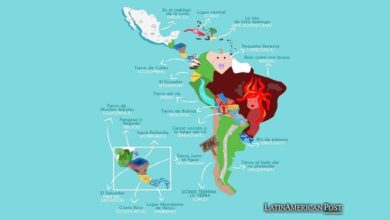What Are The Economic Consequences Of A Heatwave?
Deaths from heatwaves and economic losses are two key factors in the environmental impact of different European countries in the last four decades.

Photo: Unsplash
LatinAmerican Post | Brandon Martínez Salazar
Without a doubt, Europe has had to pay a high financial cost due to extreme weather events. Events such as storms, heat waves, floods, among others, have been the main causes of the millionaire economic losses the continent has faced.
According to the European Environment Agency, these climatic events have directly caused between 85,000 and 145,000 deaths over four decades. Likewise, the cost in public resources to attend to these situations during all this time is almost half a billion euros. A figure so high that it could perfectly be the national budget of Spain for the current year.
On the other hand, 85% of the deaths that were the product of meteorological phenomena were due to intense heat waves. 2003 was the year in which more people died from this cause. However, subsequent years had fewer human losses, thanks to the measures taken to adapt to such eventualities.
How serious has this situation been for European countries?
The highest percentage number of insured losses was obtained by countries such as Denmark, the Netherlands and Norway, who have a figure between 48 and 56% of the damage occurred. Meanwhile, nations such as Croatia, Lithuania and Romania had the lowest values in the entire continent, with a percentage between 0.5 and 1.5%.
Also read: Arica: a toxic landfill and a sick community
In this sense, the total number of economic losses has been 509,437 million euros. The resulting mortality was a total of 142,101 human lives. It should be noted that these data are taken in a period of time from 1980 to 2020 by the EEA.
However, the global situation is worrying. According to the World Meteorological Organization, the number of accidents around the planet has increased considerably in half a century. Thus, material damage is the main economic blow. While the deaths of people have been low and have been mitigated by the policies that have been implemented in the contingency.
What is the EEA doing to deal with future catastrophes in Europe?
For economic damage resulting from extreme weather-related events, EEA member countries have been creating strategies to ensure that the European Union adapts to the impacts of climate change in the coming years.
“Closing the climate protection gap through increased insurance coverage can be one of the key financial risk management tools to increase the capacity of societies to recover from disasters, reduce vulnerability and promote resilience”, says the Agency.
It is essential to take note of these decisions because surely in the future they will be forceful not only in Europe but in different regions of the planet and they will have to be attended to with great logistics to mitigate the precariousness in the communities that are they will see infected. Moreover, in places like Argentina, similar phenomena have already been experienced. The Latin American community must be vigilant to avoid losses from now on.





